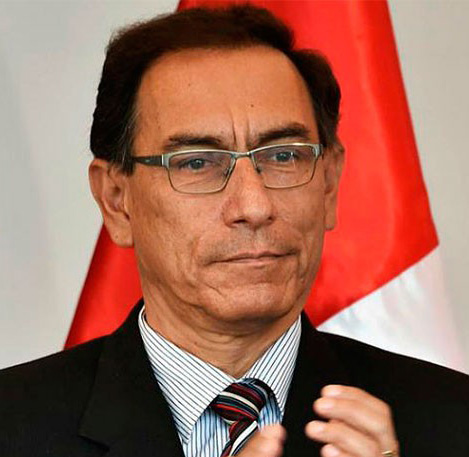LIMA, (Reuters) – Peruvian President Martin Vizcarra challenged the opposition-run Congress on Saturday to call a referendum on judicial and political reforms aimed at uprooting systemic corruption in one of Latin America’s most promising economies.
Vizcarra called for a popular vote not just to fast track judicial reforms, but also to gauge support for a ban on private financing of political campaigns, an end to the reelection of lawmakers and the creation of a second chamber in Congress.
The proposal is Vizcarra’s latest attempt to distance himself from a political class widely seen as corrupt, following the resignation of the former president in March and a cronyism scandal that has roiled the justice system in recent weeks.
“My government is making a decided bet on strengthening the state as a whole in order to defeat the criminal and corrupt mafias that feed off our country,” Vizcarra said before Congress in his first Independence Day speech since taking office four months ago.
“We need the input of all citizens. That’s why we’re convinced that a referendum is healthy for our democracy.”
It was unclear if Congress would give the green light needed for the referendum to be called. Without backing from lawmakers, Vizcarra would have to collect hundreds of thousands of voters’ signatures.
The head of the opposition party, Keiko Fujimori, the daughter of former authoritarian leader Alberto Fujimori, called for reflection. “Let’s remember that only in democracy and with respect for institutionality can we institute true change,” Fujimori said on Facebook.
Vizcarra did not propose a date for the referendum. But Peruvians will go to polls later in October to select mayors, governors and other local officials in regional elections.
A former vice president and governor of a small mining region, Vizcarra vowed to fight corruption “at any cost” when he took office to replace Pedro Pablo Kuczynski, who resigned the presidency to avoid impeachment on graft and vote-buying allegations he denied.
Since then, a second crisis has gripped the nation of 32 million people as local media have published a stream of phone conversations that appear to show judges trading favors with businessmen, lawmakers and the country’s new attorney general.
Thousands of Peruvians have taken to the streets in recent weeks to protest systemic graft, with many calling for fresh elections. A majority of Peruvians now disapprove of Congress, the government, the judiciary and prosecutors, according to a recent Ipsos poll.
“This crisis has reached a breaking point,” Vizcarra said. “That’s why, as president of the republic, I’ve decided, with the support of the citizenry, to lead a change long sought by honest Peruvians.”










